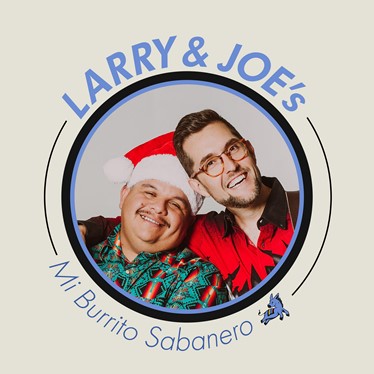When children’s choirs gather in school auditoriums of Latino communities this December, you might expect to hear the usual suspects of “Feliz Navidad” or “Noche de paz.” But a song about a little burro on its way to Bethlehem leads the pack of Spanish-language holiday favorites.
Written by Venezuelan composer Hugo Blanco in 1972, “El Burrito de Belén” has evolved into an international phenomenon, with cover versions by all manner of Latin music artists, including Colombian rock icon Juanes, bachata group Aventura, Mexican banda hitmakers Banda El Recodo or merengue star Elvis Crespo.
But the original hit, recorded in 1975 by a Venezuelan children’s choir, is probably the best loved of all. Blanco recruited the choir, named La Rondallita, to sing the tune, which tells the story of a little boy traveling with his donkey to witness the baby Jesus in Bethlehem.
Also known as “Mi Burrito Sabanero” (“My Little Donkey of the Savannah”), the song belongs to a Latin-music genre known as villancicos (roughly, Christmas carols). On first listen, the chirpy vibe of “El Burrito de Belén” might trigger flashbacks to Alvin and the Chipmunks, the American-made animated group with its own holiday hits in the 1960s.
 The high-pitched lead singer on “El Burrito de Belén” was Ricardo Cuenci, then 8 years old. His piercing voice turns the song into an earworm of epic proportions — especially so on the bridge, when the distinctive refrain of “tuki, tuki, tuki, tuki” (mimicking the clomping sound of the donkey’s hooves) kicks in.
The high-pitched lead singer on “El Burrito de Belén” was Ricardo Cuenci, then 8 years old. His piercing voice turns the song into an earworm of epic proportions — especially so on the bridge, when the distinctive refrain of “tuki, tuki, tuki, tuki” (mimicking the clomping sound of the donkey’s hooves) kicks in.
Nearly 50 years later, “El Burrito de Belén” remains a yuletide favorite, cherished in Latin communities worldwide — and beyond, into the Anglo market of the United States. For instance, Billboard magazine included the tune in its 2022 list of the Top 100 holiday songs of all time.
The song transcends boundaries of genre and geography. Larry & Joe, a so-called Latingrass combo based in North Carolina, recently recorded the tune (available on Apple Music and Spotify). “When we started playing this song in our performances last year for Christmas, Latinos came up and said, oh, that’s my favorite Christmas song. I’m so glad you did a Mexican song. Salvadorans and others would say the same. We thought, wait a minute,” Troop said. “No one even realizes that the original version was Venezuelan. It’s been so popularized that everybody has their own famous version that they think is the version.”
And in a recent interview with the BBC, Cuenci, now in his 50s, said that he feels “fulfilled by every child in the world that listens to the song and is filled with happiness.”
So wherever you are, here’s a merry “tuki, tuki, tuki” Christmas to you.

